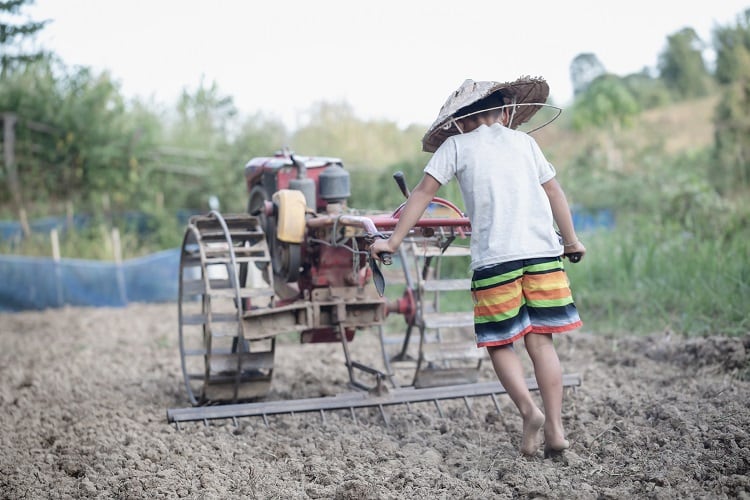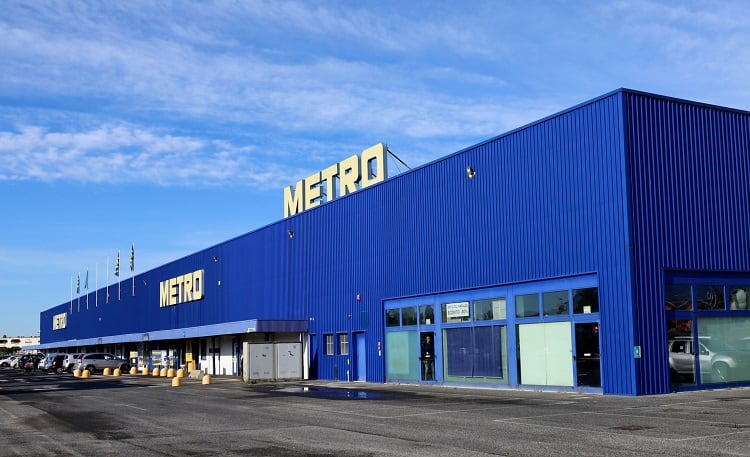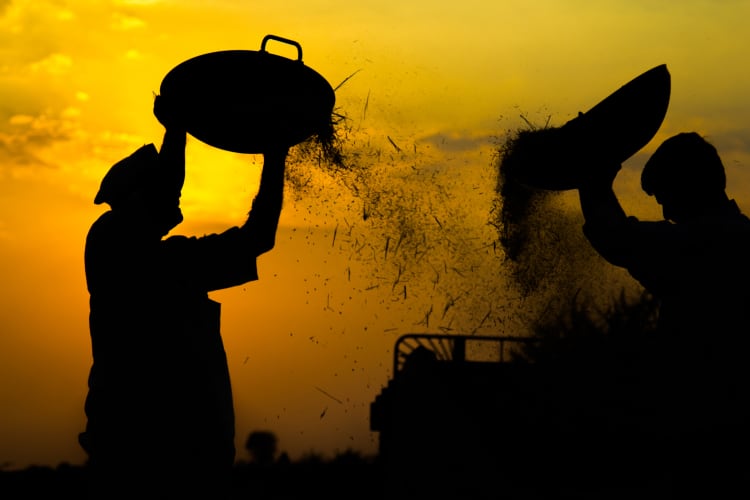Italian agriculture has long been known as a high risk sector for labour exploitation, including forced labour.
"The agriculture sector, particularly in the less developed southern part of Italy where most of the country’s farms are situated, has been known for years to rely on cheap and exploited migrant labour," according to the Global Slavery Index.
"These workers are reportedly subject to some forms of exploitation and abuse, such as not receiving adequate remuneration, being charged to use transport provided by employers, having their passports and identity documents confiscated by middlemen or labour brokers called 'caporali', being forced to live in the place where they work, which exacerbates isolation and segregation that in turn increases vulnerability to human rights abuses, and being subject to inadequate or even inhumane living conditions," the human rights organisation revealed.
This issue was brought into the spotlight this week, when the UN Working Group on Business and Human Rights highlighted ‘serious and persistent’ labour abuses relating to business activities in Italy at the end of a ten-day official visit to the country. Breaches of human rights identified included ‘inhumane’ work and living conditions, ‘serious’ occupational health and safety concerns and environmental pollution that ‘endangers public health’.
Agriculture was highlighted as one of the most at-risk sectors for endemic human rights abuses. “Migrant workers, including from African and Asian countries, working in sectors such as agriculture… are trapped in a cycle of exploitation, debt bondage and human rights abuses that must be broken,” said Surya Deva, Chairperson of the Working Group. “This requires decisive action by the Government and business to provide decent work conditions for all workers.”
The UN Working Group welcomed efforts from the Italian government to dismantle the illegal gang master system known as ‘caporalato’. However, it continued ‘many workers living in inhumane conditions see no positive change in their lives’.
Europol action highlights EU food sector risk
The update follows a recent ‘week of action’ against human trafficking for labour exploitation in the agriculture sector, which was conducted by Europol.
The policing operation, led by France, involved a wide range of law enforcement authorities including police, immigration and border guards, labour inspectorates and tax authorities from Bulgaria, Cyprus, Finland, Italy, Latvia, the Netherlands and Spain.
It identified 269 possible victims of exploitation, the majority of which – 134 – were located in Italy. Of the remainder, ninety-one potential victims were found in France, 24 in Spain, 17 in Cyprus and three in Latvia.
Law enforcement authorities inspected workplaces identified as ‘more vulnerable’ to exploitation, such as farms and vineyards. Non-EU nationals were said to be most vulnerable to exploitation as seasonal labourers, while EU nationals were reported to be exploited in the agricultural sector ‘year-round’, according to Europol.
The checks focused on the working conditions of the employees. The enforcement action targeted criminal networks and facilitators involved in the trafficking of human beings that specialise in ‘brokering’ employment on the illegal market.
“Labour exploitation is a very lucrative criminal activity, damaging the health and rights of the victims. A successful operation in France dismantled a criminal network, which has generated an estimated € 5 million in damages for victims and authorities. During the actions against this network, authorities searched 25 locations and arrested winegrowers, service providers and intermediaries,” Europol said in a statement.
In total, the action week – when 704 separate locations were checked across Europe – resulted in 12 arrests and the identification of 54 suspected human traffickers. One hundred and twenty six new investigations have been initiated in the EU as a result.
Coordinated action needed to fight labour abuses in agriculture
The European Council has prioritised tacking the ‘most significant threats’ posed by organised crime to the European Union in the EU Policy Cycle for 2018-21, a mechanism that will become permanent next year under EMPACT 2022+. People trafficking is one of the priorities outlined by the policy cycle.
Headquartered in The Hague, the Netherlands, Europol supports the 27 EU Member States in their fight against terrorism, cybercrime, and other serious and organised crime forms. Under this remit, the organisation is working to tackle human trafficking and forced labour.
According to the agency, the fight against human trafficking for labour exploitation in agriculture and food production requires a ‘consolidated, cross-border effort by different authorities’.
The UN Working Group agrees that a coordinated response is required to break the cycle of labour exploitation in the context of Italian agricultural production. It wants to see policy makers, business and civil society develop a joined-up approach to worker exploitation.
“Government authorities, businesses, and trade unions should work together to improve conditions and ensure that no one, including producers and retailers, benefits from cheap, exploited labour,” the UN human rights body argued.
Italy has taken steps to strengthen its legal policy framework covering business and human rights. However, the UN working group said there remains a need to better implement laws and impose sanctions sufficient to deter abuses by businesses.
Over the course of its ten day visit (27 September to 6 October), the Working Group visited communities living in areas of industrial activity such as Avellino, Taranto and Val d’Agri. According to the UN, these communities reported their own Government was neglecting their rights to health and a clean environment.
“Their concerns must be taken seriously,” Deva said. “Concerted efforts must be made to build trust, independently monitor emissions and health impacts, and provide effective solutions. These solutions should be forward-looking and contribute to global efforts towards decarbonisation and transition to a green economy.”
Within Italy, the Working Group called for significant improvements in revising and enforcing laws, conducting effective monitoring of business activities, and strengthening access to effective remedy for business-related human rights abuses. Italian businesses and foreign-owned businesses operating in Italy must also carry out ‘meaningful human rights due diligence’ across their operations and supply chains, it argued.
“As a highly developed economy in the European Union, Italy should establish a strong, independent national human rights institution without further delay with an explicit mandate to deal with business-related human rights abuses. It should also enact a mandatory human rights and environmental due diligence law,” Deva said.
The Working Group visited Italy to examine efforts to implement their human rights obligations under the UN Guiding Principles on Business and Human Rights both in Italy and in relation to the activities and supply chains of Italian business abroad. The visit coincided with the ongoing revision of Italy’s national action plan on business and human rights as well as the G20 Leaders’ Summit to be held in Rome later this month.
“This is a golden opportunity for the Government of Italy to demonstrate leadership by putting its commitments into practice, first and foremost for the most vulnerable and for the environment,” Deva concluded.




